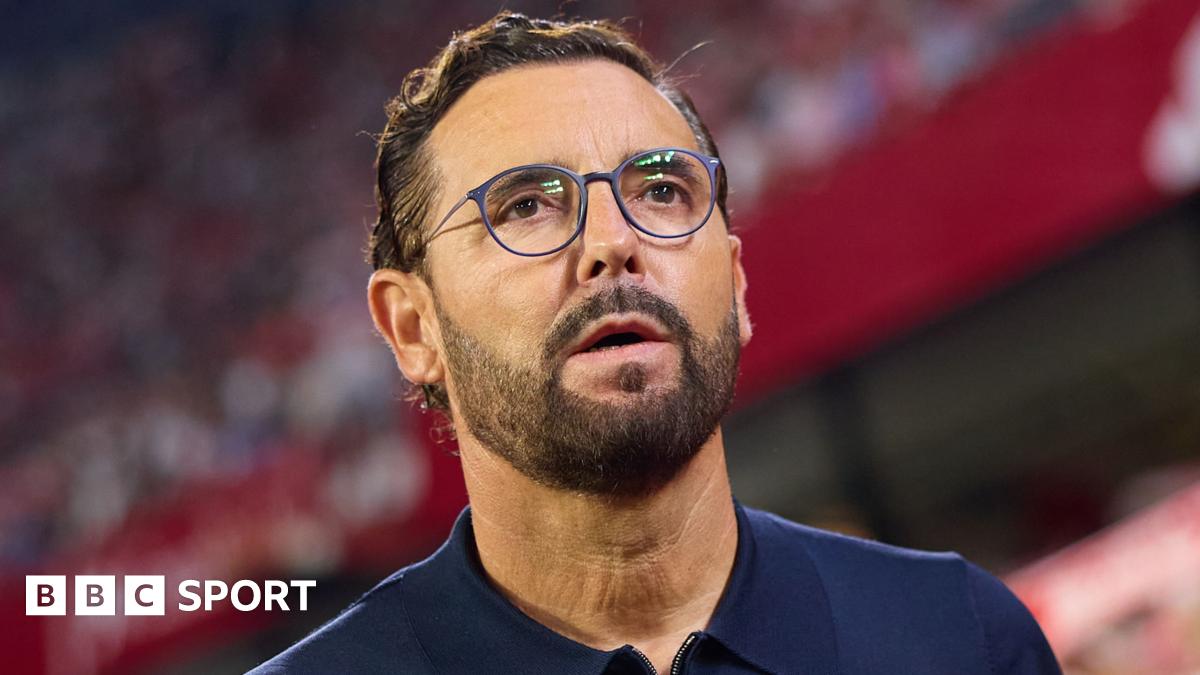Football in Spain has long been torn between two extremes: the positional game and possession-heavy ideals descended from Johan Cruyff, and the pragmatists who prioritise structure, intensity and results.
Bordalas stands unapologetically in the latter camp but was inspired by the former.
It is simply that he has not been given the chance to put it into practice, because the clubs he has managed in the three tiers of Spanish football have not had the players to perform such football.
For aesthetes, his direct and uncompromising brand of football is unwatchable. For his players and fans, it is irresistible.
Beyond the caricature, Bordalas’ methods are rooted in structure and detail.
Training sessions can last three hours, double the usual length. Players are weighed every morning and those who return overweight after holidays are forced to train with extra kilograms strapped to their bodies.
He once challenged his players to kick a ball far enough to reach Madrid’s M-50 motorway, offering 500 euros (£432) and a starting place to whoever succeeded.
At former club Alcorcon, he set a similar test: try to head the ball out of the stadium. It is the reinforcement of his mantra – effort, competitiveness and always pushing limits.
Players often admit to feeling suffocated by his demands – and yet many confess they experienced the best football of their careers under him.
Juan Cala, who played at Getafe between 2015 and 2018, said: “He made me mad, like a father does… but he made me live the best moment of my career.”
Even before it became fashionable, Bordalas spotted three essentials: high pressure, organised defence, and a physical aptitude in the players that permits them to cover a lot of space on the field.
He demands a high, aggressive press that forces opponents to go long, as well as compact defensive lines and immediate transitions. There is no tolerance for sterile possession.
The numbers back it up. Getafe consistently rank among the teams who defend furthest from their goal, catch teams offside the most times and commit the most fouls.
The result? They allow the fewest shots on target. The sacrifice of aesthetics is the price of security.
Most recently, Bordalas has added an AI tool to his armoury, technology he hopes can give him clues on how best to position the team with the ball, without the ball, and how to force errors.
Bordalas places a lot of emphasis on improvisation and spots solutions where others see obstacles.
Take Christantus Uche. Signed as a midfielder from Ceuta by Getafe in summer 2024 for 500,000 euros (£430,000), he was reinvented as a striker to help solve a squad shortage.
The Nigerian scored on his debut and, after 33 games, four goals and six assists, he was sold to Crystal Palace for £17m as a forward.
Critics call his approach reductive. Bordalas calls it realistic.
“I’d love to control the ball more,” he said. “I’m a lover of good football, but you have to adapt to the players you have.”
That adaptability has allowed him to thrive in environments where others have failed. From Hercules to Elche, Alaves to Getafe, he has consistently overachieved with squads of modest talent.

